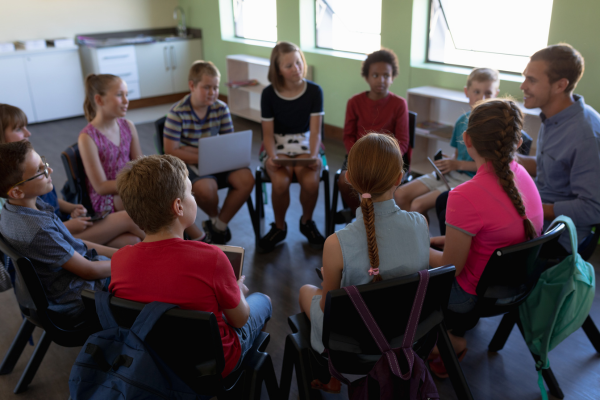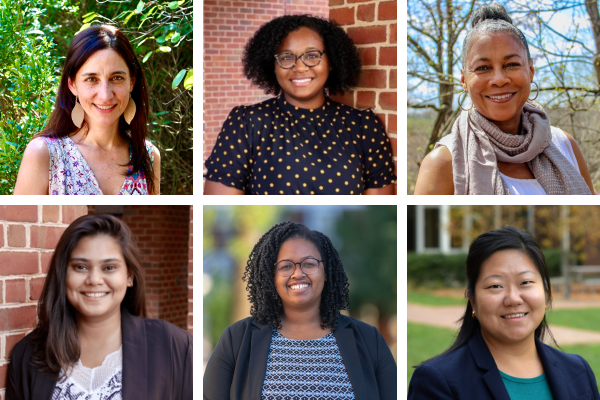
Youth-Nex was founded in 2009 to expand and apply the science of positive youth development to address fundamental challenges facing societies around the world. Youth-Nex supports junior scholars and their professional development throughout their career. Learn more about the current candidates on the job market for 2023-24! These candidates are in alphabetical order by last name, including Maria Guzman Antelo, Dr. Jessica Forrester, Dr. Pamela Nicholas-Hoff, Dr. Toshna Pandey, Ariana Rivens and Jieun Sung.
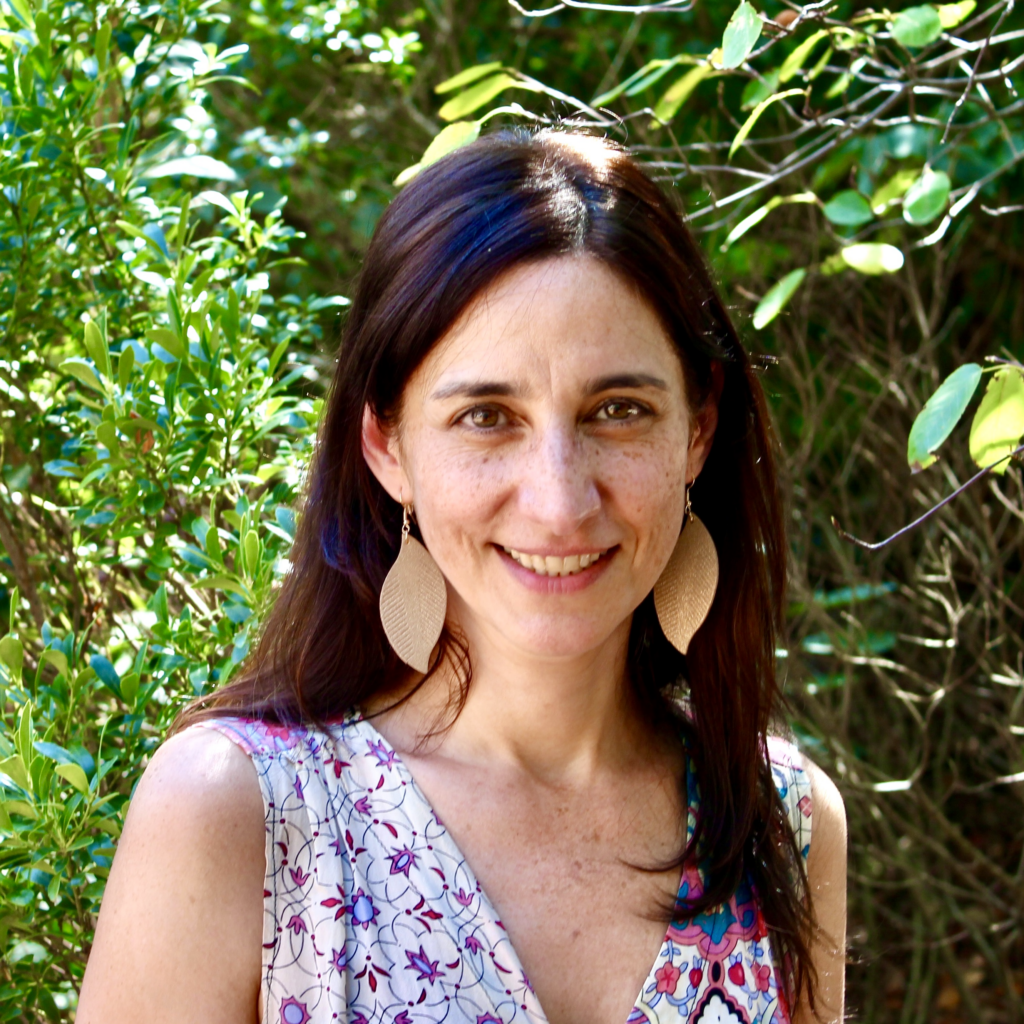
Maria Guzman Antelo
María Guzmán Antelo (she/her) is a Ph.D. candidate in Curriculum and Instruction in the School of Education & Human Development at UVA. She is a bilingual speaker of Spanish and English with transnational teaching experience in Argentina, China, and the US.
Her work focuses on preparing and supporting pre-service teachers to work with multilingual learners and their families and the role mentor teachers play in the preparation of future teachers.
Research Interests: Teacher learning and development for teaching multilingual learners; practice-based pedagogies of teacher education; reflective teaching practices; core practices for teaching multilingual learners; advocacy, and social justice.
Faculty Advisors: Dr. Chris Chang-Bacon and Dr. Peter Youngs
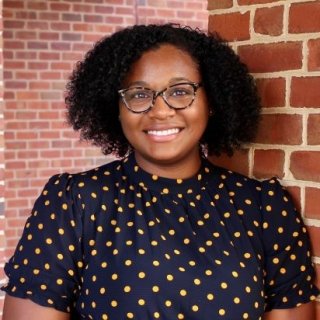
Dr. Jessica Forrester
Jessica Forrester (she/her) earned her Ph.D. in STEM Education from the University of Minnesota, where she combined her interest in STEM engagement with justice-oriented practices in education. For her dissertation, Jessica created culturally responsive mathematics activities for an after-school tutoring program by authentically connecting the traditionally rigid content area of mathematics with the beauty, brilliance, and histories of communities not always seen through an asset-based lens. Jessica’s passion for equity, community engagement, and participatory research methods is grounded in amplifying the voices and solution-driven ideas of historically marginalized communities and youth, especially in academic and research settings. In addition, Jessica embodies a culture of care and considers how adults can use their power to support youth as leaders of change.
Jessica is currently a postdoctoral researcher with Youth-Nex’s youth participatory action research (YPAR) initiative, Youth Action Lab. Jessica’s work with Youth Action Lab focuses on three key areas: 1) supporting existing community partnerships, including school-based YPAR classes and out-of-school programming; 2) developing a line of research on the processes and outcomes for all participating YPAR stakeholders (high school youth, teachers, youth organization leaders, undergraduate students, graduate researchers, affiliated faculty); and 3) challenging traditional research dissemination approaches (e.g., including youth and community voices in scholarly publications). In addition to her research endeavors, Jessica supports multiple research labs on implementing YPAR practices in their unique contexts and mentors graduate and undergraduate students as they navigate their research journeys.
Research Interests: Participatory action research, bridging theory and critical practice, culturally responsive mentoring, community engagement, qualitative methods, positive youth development, and decolonizing research methodologies
Faculty Mentor: Dr. Nancy Deutsch
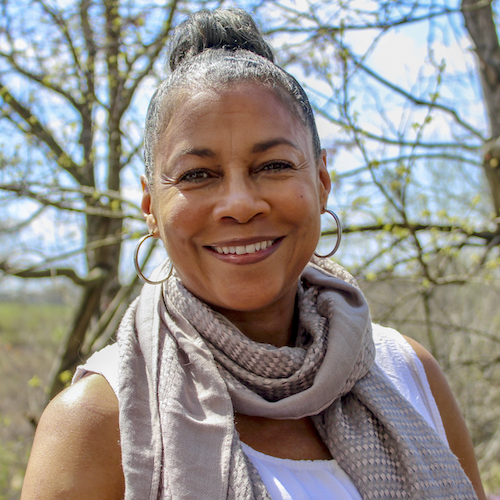
Dr. Pamela Y. Nicholas-Hoff
Pamela Nicholas-Hoff is a postdoctoral research associate for the University of Virginia School of Education and Human Development’s Youth-Nex Center and Department of Curriculum, Instruction, and Special Education. Pam earned her B.S. in Middle School Education and M.Ed. in Physical Education with a concentration in Exercise Physiology from the University of Virginia. Before matriculating to the University of Virginia to earn her Ph.D. in Curriculum and Instruction, Pam taught in the Health, Physical Education, and Recreation Department of a historically Black institution. Prior to teaching at the collegiate level, Pam taught middle school. While teaching middle school, she developed a Health, Physical Education, and Social Emotional Learning curriculum that she implemented with her students attending an alternative middle school. Pam is interested in how pre- and in-service educators’ increased levels of mindfulness and social emotional competency may eliminate disproportionate rates of exclusionary discipline consequences for Black students by mitigating educators’ implicit racial bias. Her dissertation research, funded by an American Educational Research Association-National Science Foundation Dissertation Grant, employed zero-inflated negative binomial regression modeling to analyze and compare counts and incident risk rates of out-of-school suspension using federally-funded, national datasets spanning the Obama and Trump administrations.
Research Interests: Interventions for eliminating racial discipline disparities, Educators’ implicit racial bias, Educators’ social emotional competency, Focused awareness practices as interventions to mitigate implicit racial bias, Caring/compassion practices as interventions to mitigate implicit racial bias, Relationship between educators’ levels of mindfulness and implicit racial bias, Relationship between educators’ levels of social emotional competency and implicit racial bias, and Critical Race Theory.
Faculty Advisors: Nancy L. Deutsch, Ph.D. and Patricia (Tish) A. Jennings, Ph.D., M.Ed.
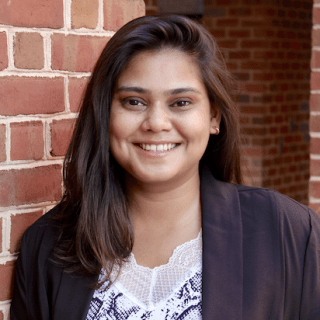
Dr. Toshna Pandey
Toshna Pandey earned her Ph.D. in Special Education from Virginia Commonwealth University. She is currently working as a postdoctoral research associate with Catherine Bradshaw, Jessika Bottiani, and Katrina Debnam on projects that seek to prevent challenging student behaviors, facilitate positive student-teacher engagement, and improve teachers’ equity stamina and racial literacy. Pandey’s research focuses on optimizing coaching to enhance teachers’ implementation fidelity of evidence-based practices. Specifically, she serves as the Co-PI on an internal research grant that explores the core components of classroom-based coaching models that lead to high intervention implementation fidelity. She is interested in supporting teachers’ use of social, emotional, and behavioral school-based interventions to reduce students’ challenging behaviors and consequently, exclusionary discipline. Concurrently, she is working on a NIMHD-funded grant that uses a school-level randomized controlled trial (RCT) design to test the integration of a universal, classroom-based evidence-based social-emotional learning program for Anne Arundel County Public Schools students with elements of from the Double Check professional development framework and an equity-based coaching component. She has extensive experience collecting classroom data using observational measures and has served in leadership roles to train members of various research teams in similar measures. At present, she serves as a project coordinator for an IES-funded follow-up study that seeks to explore teachers’ practices, attitudes, beliefs, and personality traits that influence their use and perceptions of the Good Behavior Game intervention and MyTeachingPartner. She has proficient interviewing skills and extensive experience using qualitative and mixed-methods research designs. She also serves as a project coordinator for an NIH-funded grant that aims to generate new theories regarding the context and development of romantic relationships for young Black women using grounded theory.
Research Interests: School-based preventative behavior interventions, classroom management, classroom observations, teacher professional development using coaching models, implementation fidelity, cultural-responsiveness, disproportionate exclusionary discipline among racially and ethnically minoritized students, school mental health, qualitative research methods, mixed-methods research.
Faculty Mentor: Dr. Catherine Bradshaw
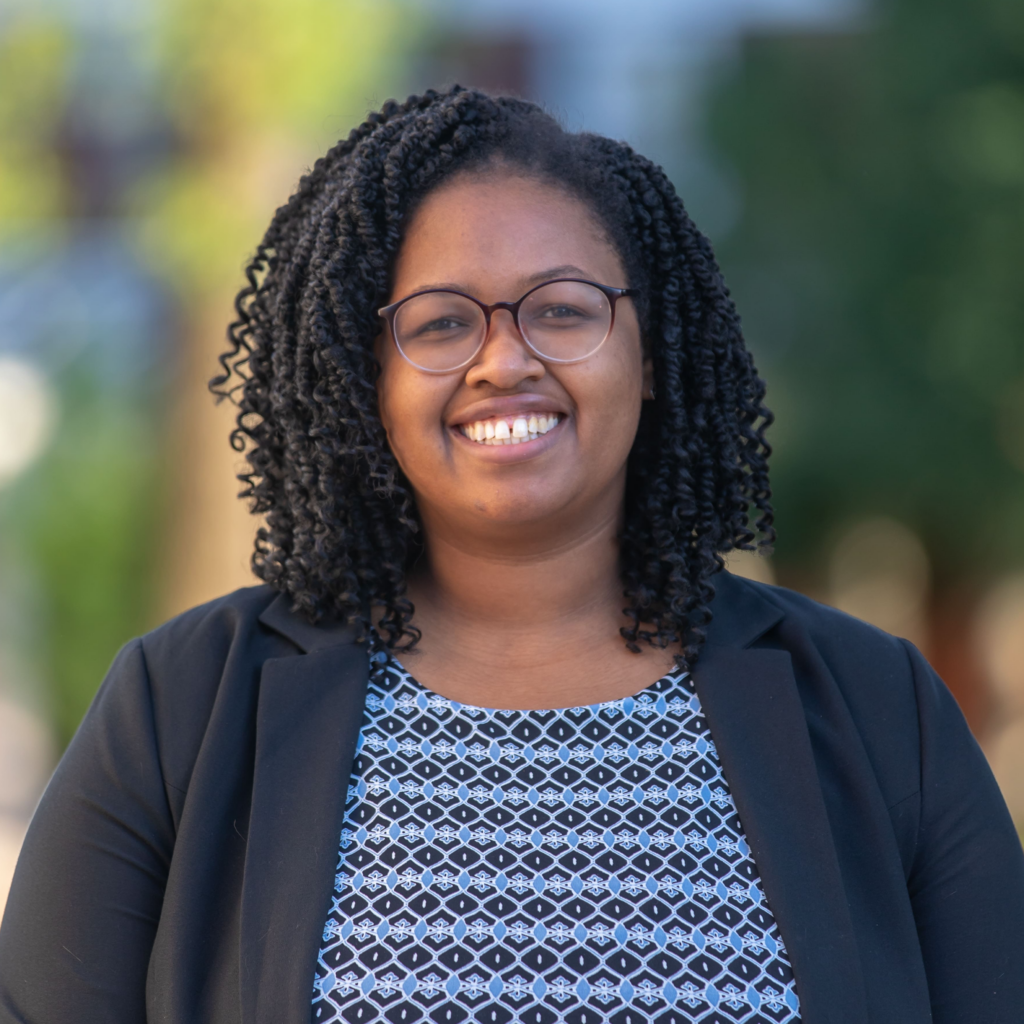
Ariana Rivens
As a doctoral candidate at the University of Virginia and predoctoral intern at the University of Pennsylvania, Ariana Rivens has received substantial clinical science training and clinical experience. These experiences have informed her commitment to being a clinical psychologist who conducts rigorous research and evidence-based clinical practice. Her research program leverages qualitative and mixed methodology to examine the multifaceted experiences of Black adolescents and emerging adults, with a particular focus on mental health service utilization and higher education. She is passionate about using research findings to reduce racial health disparities, inform the adoption of culturally responsive clinical practices, and address structural inequalities in behavioral health systems. As a clinician, Ariana seeks to continue working among the most marginalized individuals experiencing psychological distress by focusing on pathways to care.Thus, Ariana is seeking postdoctoral positions that will facilitate her growth as a clinical psychologist who utilizes empirical research coupled with evidence-based assessment, intervention, and supervision skills to improve mental health service use. She is particularly interested in working in multidisciplinary team environments where she is able to leverage and refine the clinical and research expertise she has developed throughout her doctoral training, as well as contribute to equity efforts.
Research Interests: Black youth and emerging adults, culturally responsive practice, pathways to care, mental health service utilization, trauma-informed practice, collegiate mental health, community engagement, higher education, applied research, mixed methods, qualitative methods,
Clinical Interests: Pathways to care,evidence-based treatment, cultural adaptations and considerations for those with marginalized identities (i.e., racial/ethnic, LGBTQ+, low-income), suicide prevention and treatment, trauma-focused care
Faculty Advisors: Dr. Noelle Hurd, Dr. Joseph Allen, & Dr. Seanna Leath
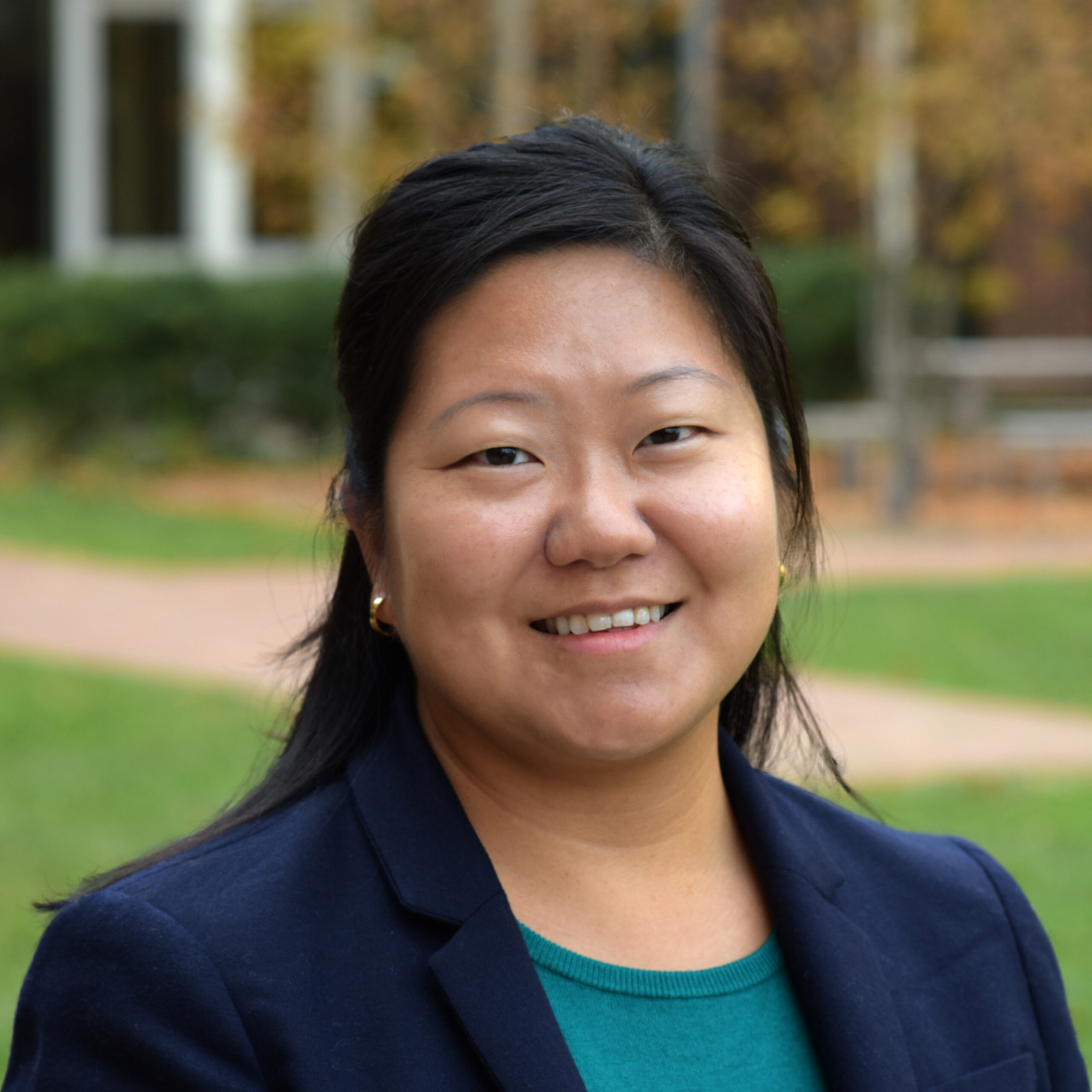
Jieun Sung
Jieun Sung is a Ph.D. Candidate in the Social Foundations program at the University of Virginia School of Education and Human Development. Her work is concerned broadly with ways that education, schooling, ethical formation, and the preparation of individuals to participate in social, cultural, political, and civic life are interrelated. She is particularly interested in the educational experiences of newcomer families and the significance of non-school contexts as influential sites for youth development. Her current research explores how immigrant families’ experiences of education, cultural adaptation, and overall adjustment are shaped by interactions with significant community organizations and networks. Her dissertation focuses on efforts by Korean American and Korean immigrant parents to navigate the formal education of children, and on the role of Korean ethnic church communities in shaping families’ relationship to schools.
Research Interests: Youth development and non-school contexts, community engagement, education of newcomer youth, immigrant integration, global migration and diaspora, ethnic and racial identity development, belonging, and ethical formation
Faculty Advisors: Dr. Rachel Wahl
If you have any comments or questions about this post, please email Youth-Nex@virginia.edu. Please visit the Youth-Nex Homepage for up to date information about the work happening at the center.
